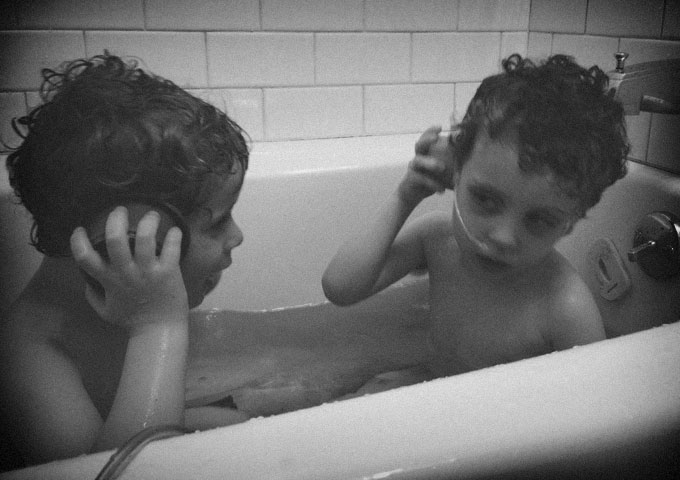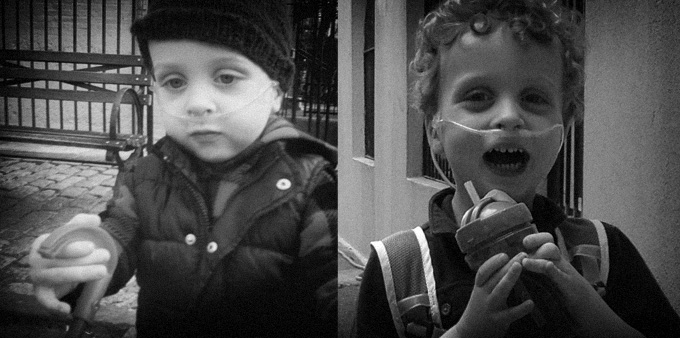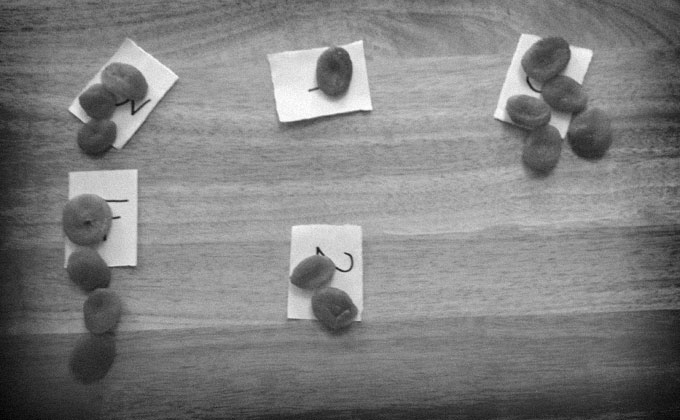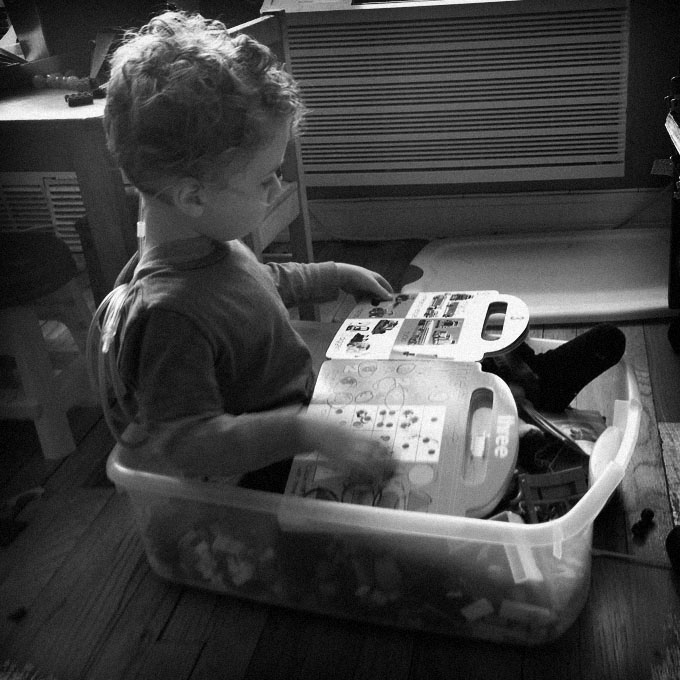In this lovely NY Times blog post, Joel Yanofsky writes of his family's preparations for their autistic son's impending bar mitzvah. The whole post is humorously touching, but I wanted to cite one line that really hit home:
When you have a child with autism you soon learn that you have to teach him everything, especially things most kids pick up intuitively — from playing with toys to carrying on a simple conversation.
This is it in a nutshell, the thing I keep trying to get at when I describe C's autism. You see, on their own the symptoms sound like a collection of personality quirks: repetitive behaviors, echolalia, lack of social reciprocity, lack of imaginative play, physical tics, etc.
The combined effect of these 'quirks,' however, is that C fundamentally does not understand how to interact with the world. Whereas his neurotypical twin is figuring things out on his own every hour of every day regardless of what we teach him, C needs to learn how to learn, if that makes sense. It's so much more fundamental.
And that is why, when Yanofsky writes this line, he really nails it:
The future is a scary place for every parent, but it’s especially so for the parent of a child with autism. No one has ever been able to tell Cynthia or me with any degree of certainty what our son is capable of.
We were cautioned by a doctor just after my son's diagnosis that we should never look too far into the future. "I've seen children we thought would do quite well who failed to progress," she said, "and I've seen children who were essentially written off who ended up surprising us all."
Sometimes I feel robbed of an imagined future, but I feel fortunate to have such a wonderful present.


 Long before C's official diagnosis we knew something was amiss; there were little signs, things that didn't seem quite right. Nothing, however, that we couldn't attribute to his being a sick boy with a rare lung disease. Then, around his second birthday, we noticed what many refer to as 'regression.'
Long before C's official diagnosis we knew something was amiss; there were little signs, things that didn't seem quite right. Nothing, however, that we couldn't attribute to his being a sick boy with a rare lung disease. Then, around his second birthday, we noticed what many refer to as 'regression.' A little fun combining C's love of organizing, counting, and apricots.
A little fun combining C's love of organizing, counting, and apricots.  At a friend's apartment, all the kids were running and playing except for C who, in his typically unique way, found a toy box to sit atop. Why not?
At a friend's apartment, all the kids were running and playing except for C who, in his typically unique way, found a toy box to sit atop. Why not?